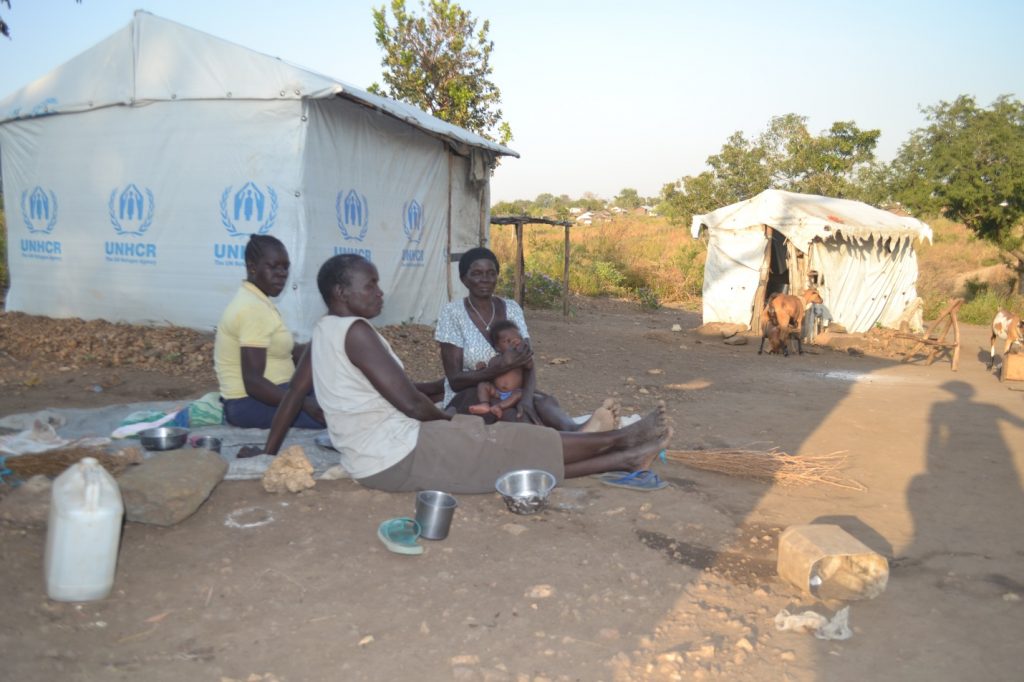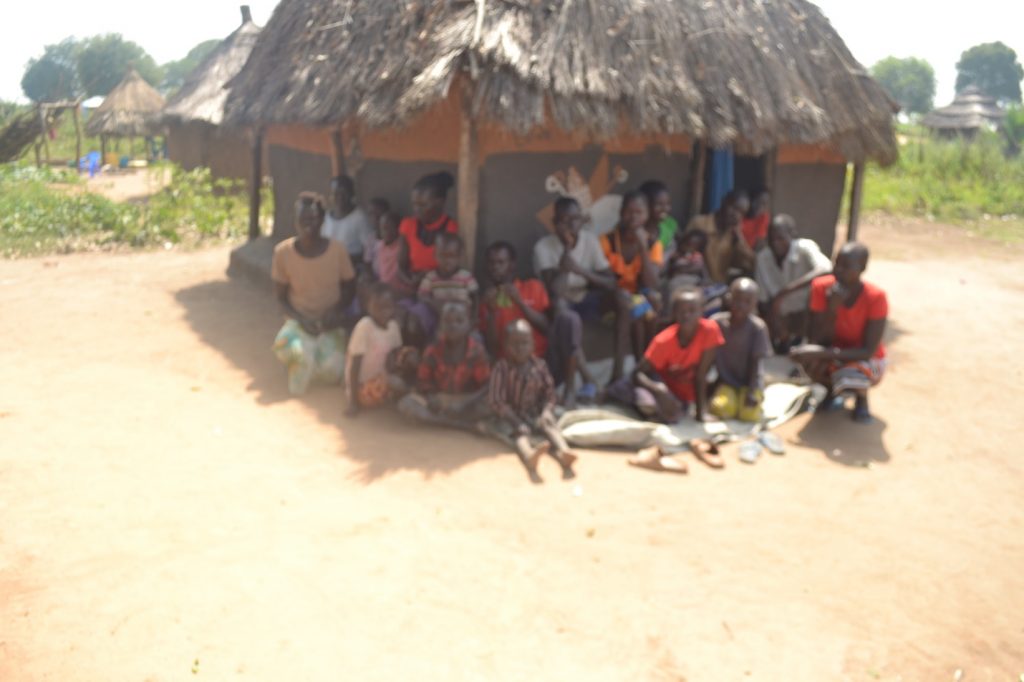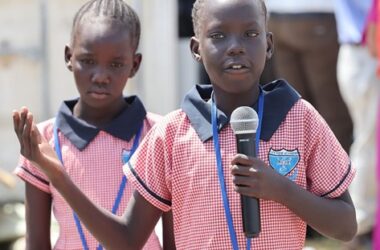
By Kiden Stela Mandela
The political crisis in South Sudan that plunged the country into civil war in December 2013 and July 2016 has destroyed the wellbeing of the ordinary South Sudanese citizens forcing over 2 million of them to move to the neighboring Uganda as refugees, leaving them to survive in the hands of relief supply in the exile.
This dependence on food handouts from the UN and humanitarian relief agencies introduced the South Sudanese refugees to immense suffering as often food ratios are being cut and sometimes not brought on time, yet the desperate refugees most of who back home in South Sudan survive on farming but lack of land to cultivate made them more vulnerable to hunger.
No.1 Citizen Daily Newspaper reached out to some of the refugees and they recounted their dire living conditions in Ugandan refugee settlement camps.
Alour Josephine told No. 1 Citizen Daily Newspaper in Yelulu 2 refugee camp in Uganda that all those Non-Governmental Organizations (NGOs) like Save the Children, DRC AFI and many other aid agencies who work at the settlement camps are not doing their duties yet these are NGO’s who wrote their proposal for funding’s in the name of refugees, but after receiving they end up forgetting everything and put in their banks accounts.
Alour Josephine said “here in Uganda the challenges we face as refugee are shortage of food, land for cultivation UN is also telling us to look for other ways of food not only to depend on the ration but here in the camp there are no ways of getting land for cultivation from the host community unless if you are looking for death in Yelulu 2 Uganda”.
Solomon Osakana refugee desk officer in Arua had earlier told No.1 Citizen Daily Newspaper that “in terms of food in 2019 there had been enough food that was 100 percent ration so in 2021 now WFP did not get enough food from the donors the food is reduced almost to half however since we have given them land so that they can cultivate. So the refugee is supposed to complain to the donors”.
“Medication is the biggest problem many of us died here due to poor health facilities and the doctors keep on telling us that no drug. Go and find your level best in a harsh manner and most lost lives here in the camp” Alour further recounted their suffering to No.1 Citizen Daily Newspaper in 2020.
“Here in the camp many orphans left their parents in South Sudan and those who lost their relatives are suffering so much and save the children as an NGO in Uganda is not really supporting these children because now we have street children due to no support this child is not paid in school” she continued.
“We actually want to go back to our home land but fear for insecurity where every day killing is the order of the day around South Sudan, this NGO’S who are mistreating us for what they failed to give us yet in the long run is returnable” she said.
“I urge the leadership of Salva Kiir Maryardit, the opposition leader Riek Machar to bring mature peace that can last for many years, this useless war has caused many loss of lives, orphans and suffering in South Sudan and even the wealth that we are supposed to enjoy as citizens of South Sudan is just flowing outside the country because every time people are in the camp makes us backward” Yelulu 2 Comp resident Alour Stressed.
Komakech another refugee in Yelulu 2 also told this reporter that “it is really difficult with the host community they don’t allow us to cultivate even the one around our camps their animals also destroy our crops this mistreatment is too much her one day we will walk back by foot to our country”.
Sometimes no food, salt and it will take six months without and on top of these six months we are given rotten food while realizing on it UN will make sure that they return back and only change the sacks and redistributes to us as we have no choice” he stressed.
Meanwhile, Kiden Mary who’s also a refugee in Imvepi refugee settlement camp employed with Save the Children told No.1 Citizen Daily Newspaper that most times Save the Children stands with the children. But to a smaller extend they provide in kind support such as clothes to the children and parents.
“It is true that Save the Children are not doing their work here in the camp, we are not distributing to all the children who are not having parents here in refugee settlement some time our bosses don’t use quota of the money to provide service to the children such as medication, children end up on street moreover in the camp yet the money they are keeping in their account is donated for the purpose of this children” she exclaimed.
Flora Khemisa another refugee in the Imvepi camp said, “here in the camp women and young ladies have been raped and killed in cold blood by the host community, poor medication and even the NGO’s workers give their duties to some educated South Sudanese to work and prepare report for them to present to their donor’s and at the end will not pay, we have really suffered” she narrated their ordeal
On rape, Solomon Osakana the refugee desk officer in Arua noted that “the issue of rape I don’t have any record in our police station here and crime committed by the host communities here what has been happening is that the laws in Ugandan is same like in South Sudan in Uganda when some is 18 is called defilement, but they are very tall like Dinka’s, Nuer at the age of 13 looks an adults and then this boy who came from South Sudan quickly rape them, so if is reported to us we usually arrest them”.
Solomon stressed that the host community rarely involve in such cases because now if you visit the prison in Uganda many south Sudanese were arrested because of the rape cases.
In South Sudan, Susan Tabu a DRC refugee in Lasu of Yei County in South Sudan’s Central Equatoria State also told narrated her story.
“When we came from DRC Congo back home basing in Morobo, We were having nothing to eat, medication even nowhere to Sleep No UN reached us but you find UN supporting other States and counties in South Sudan” which we feel that only insecurity but we are hardworking people since our land is so fertile for agriculture” she recounted
However, Jamal Arafat the UNHCR Country Representative in South Sudan told No.1 Citizen Daily Newspaper in an inclusive interview before last year’s World Refugee day that “Yei have different pollution comprising of 9,000 Congolese some 1,000 Nubians and 40,000 South Sudanese hailing from Equatoria region who return from Congo.
“We are doing what we can but the main problems the insecurity is too high for them to cultivate because I show so many fruits in Yei land until there will be security in Yei things will not be easy for them” the UNHCR top official in South Sudan noted.




